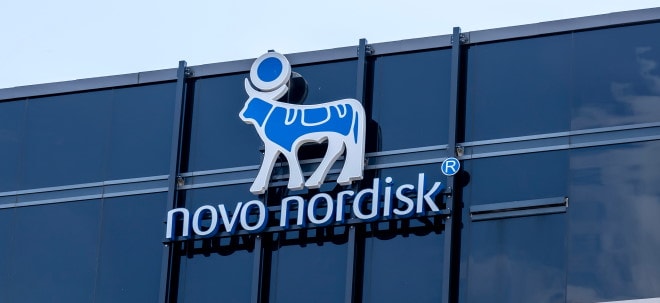Clario and the University of Oxford's NeuroMetrology Lab Advance Parkinson's Disease Research with the Opal® Wearable Sensor System
- Clario partners with the University of Oxford's NeuroMetrology Lab to transform Parkinson's disease research with the Opal® wearable sensor system.
- Partnership to advance clinical trial endpoints by improving identification of disease progression and movement-based endpoints.
- Digital endpoints of gait and balance combined with machine learning enable earlier detection of motor symptom progression.
- Opal sensors can predict the risk of falls in Parkinson's patients with up to 92% accuracy two years in advance and 78% accuracy five years in advance.
PHILADELPHIA, Oct. 6, 2025 /PRNewswire/ -- Clario, a leading provider of endpoint data solutions for clinical trials, today announced the enrollment of the first participant in its collaboration with the University of Oxford's NeuroMetrology Lab, led by Professor Chrystalina Antoniades. The partnership is focused on advancing the use of Clario's Opal® wearable sensor system to enhance Parkinson's disease (PD) research by enabling more precise measurement of motor symptoms and disease progression.
The Opal® wearable sensor collects detailed, objective movement data through single- or multi-sensor setups, enabling the detection of subtle but meaningful changes in gait, balance, and mobility with a level of precision that surpasses traditional assessment methods. The NeuroMetrology Lab's groundbreaking work, powered by Opal's cutting-edge movement analysis capabilities, improves monitoring of disease progression and predicts adverse events such as falls, which represent a significant cause of disability and reduced quality of life in PD patients.
Findings from Professor Antoniades' team demonstrate the high potential of movement analysis in PD research and pave the way for predictive and preventive healthcare. In a recent study, a 3-minute in-office assessment predicted fall risk for Parkinson's patients with 84–92% accuracy up to two years in advance and 78% accuracy up to five years in advance. These predictive capabilities may change how the disease is managed and provide greater opportunity to evaluate therapeutic efficacy in clinical studies.
"Our collaboration with Professor Antoniades and her team is an exciting step forward in Parkinson's research," said Ellen Street, Executive Vice President and General Manager, Digital Physiology at Clario. "The team's research combined with the unique capabilities of the Opal device can improve monitoring of disease progression and enable a greater ability to understand the effect of a drug candidate in Parkinson's patients. It perfectly embodies Clario's mission to transform lives by unlocking better evidence."
"We are excited to partner with Clario to enhance Parkinson's research using Opal's advanced movement analysis," said Professor Antoniades. "This collaboration will refine predictive models for fall risk and disease progression, improving patient outcomes. There is a crucial need for regulatory-approved digital movement endpoints in clinical trials to assess Parkinson's therapies accurately. Integrating validated, objective measures into drug development will enable precise evaluation and accelerate optimized treatments for patients."
This phase of the collaboration between Clario and the NeuroMetrology Lab will determine the usability and effectiveness of Opal data collected in remote settings via prescribed tasks in the home and real-world passive mobility monitoring, powered by Mobilise-D Digital Mobility Outcomes that Clario now offers.
To learn more about Clario and its wearable sensor technologies, please visit Clario.com.
About Clario
Clario is a leading provider of endpoint data solutions to the clinical trials industry, generating high-quality clinical evidence for our pharmaceutical, biotech, and medical device partners. We offer comprehensive evidence generation solutions that combine eCOA, cardiac solutions, medical imaging, precision motion, and respiratory endpoints.
For more than 50 years, Clario has delivered deep scientific expertise and broad endpoint technologies to help transform lives around the world. Our endpoint data solutions have supported over 30,000 clinical trial opportunities in more than 100 countries. Our global team of science, technology, and operational experts have supported over 70% of FDA and EMA new drug approvals since 2015.
For more information, go to Clario.com or follow us on LinkedIn.
Media Contact:
About University of Oxford's NeuroMetrology Lab
The NeuroMetrology Lab at the University of Oxford, directed by Professor Chrystalina Antoniades, is dedicated to developing objective, quantitative tools to measure neurological function. By combining cutting-edge sensor technology, neurophysiology, and clinical neuroscience, the lab aims to improve the detection, monitoring, and treatment of movement disorders such as Parkinson's disease. Its interdisciplinary approach bridges academic research, clinical practice, and industry collaboration to accelerate the translation of scientific discoveries into real-world patient benefit.
https://www.linkedin.com/company/neurometrology-lab/
About the Nuffield Department of Clinical Neurosciences
About Oxford University
![]() View original content to download multimedia:https://www.prnewswire.com/news-releases/clario-and-the-university-of-oxfords-neurometrology-lab-advance-parkinsons-disease-research-with-the-opal-wearable-sensor-system-302575145.html
View original content to download multimedia:https://www.prnewswire.com/news-releases/clario-and-the-university-of-oxfords-neurometrology-lab-advance-parkinsons-disease-research-with-the-opal-wearable-sensor-system-302575145.html
SOURCE Clario


